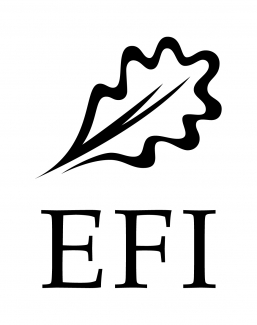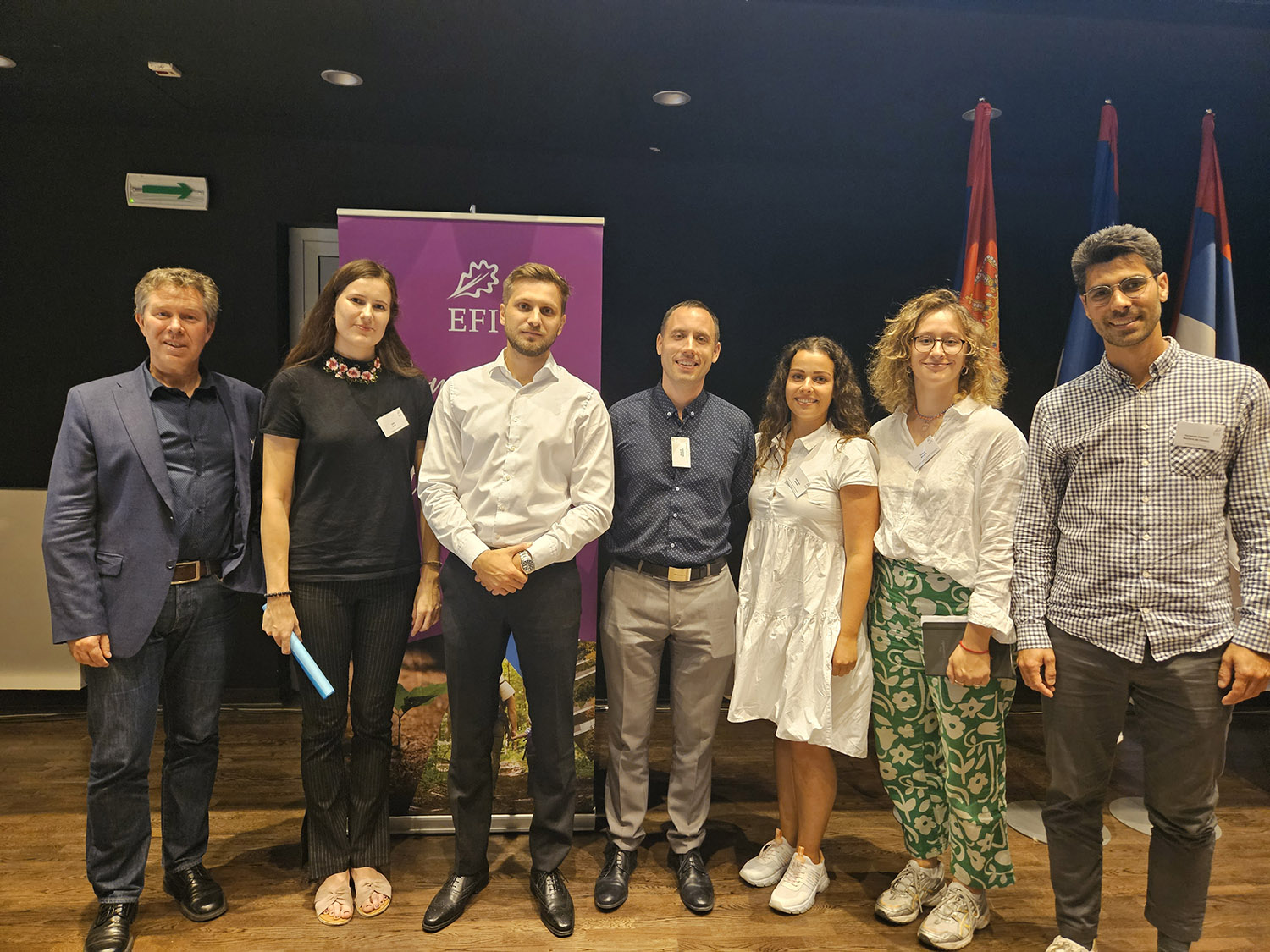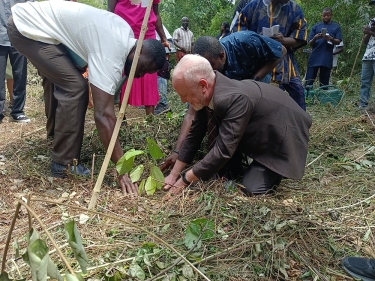Young Scientists Session on Agroforestry

EFI Annual Conference, 20 September 2023
Following on from the success of last year’s inaugural Young Scientists Session, 2023 saw young researchers from the EFI network confidently dive into the subject of agroforestry and explore how it can contribute to creating more resilient landscapes.
Ajdin Starčević (Stichting Wageningen Research) placed agroforestry within the framework of Climate Smart Forestry, which aims to increase the potential of forests in climate mitigation, adaptation and increased production. His research has analysed how forest management practices (including agroforestry) are being applied on the ground.
Fernando Esteban Montero de Oliveira (University of Freiburg) explored options to boost the adoption of agroforestry systems in the Brazilian Amazon and the Upper Rhine valley in Central Europe. Agroforestry systems are very diverse (and often don’t fit within one particular sector), leading to a constellation of actors and a wide variety of policy purposes and political prospects for adoption.
Luna Jović (University of Novi Sad) asked whether Serbian agriculture could benefit from implementing an agroforestry approach. Elements such as afforestation (for example to create shelter belts and windbreaks) or silvopastoral methods could be applicable in different areas of Serbia, and help with current environmental, economic and social challenges.
Anna Mária Mitrová (Mendel University in Brno) explored the implementation and impact of agroforestry systems in Slovakia and the Czech Republic, where the collectivisation of agriculture, entry to the EU and the Common Agricultural Policy have had a substantial impact on the former mosaic landscape. Here, agroforestry (for example alley cropping or sheep as forest managers) could provide immediate benefits, but supportive policy is needed for implementation.
Tanja Kähkönen (EFI) discussed how Regional Agroforestry Innovation Networks were used within the AF4EU project to bring together farmers and landowners on the ground and find out their perceptions of agroforestry. Farm walks in Finland, for example, enabled groups to discuss the obstacles and new innovative business opportunities for agroforestry in a comfortable setting.
The young scientists were joined by Dejan Stojanović (Institute for Lowland Forestry and Environment) for a wide-ranging panel discussion on the opportunities for agroforestry. The panel noted that each country or region is different and therefore one type of agroforestry does not fit all. Design is important for site-specific conditions – but it can be hard therefore to scale up and create value against other systems. Widespread adoption is difficult – an alternative approach might be to go to the other end of the spectrum and ask the value chains and consumers/private companies who are investing in products and face social pressure to be greener, to push the system into a change.



